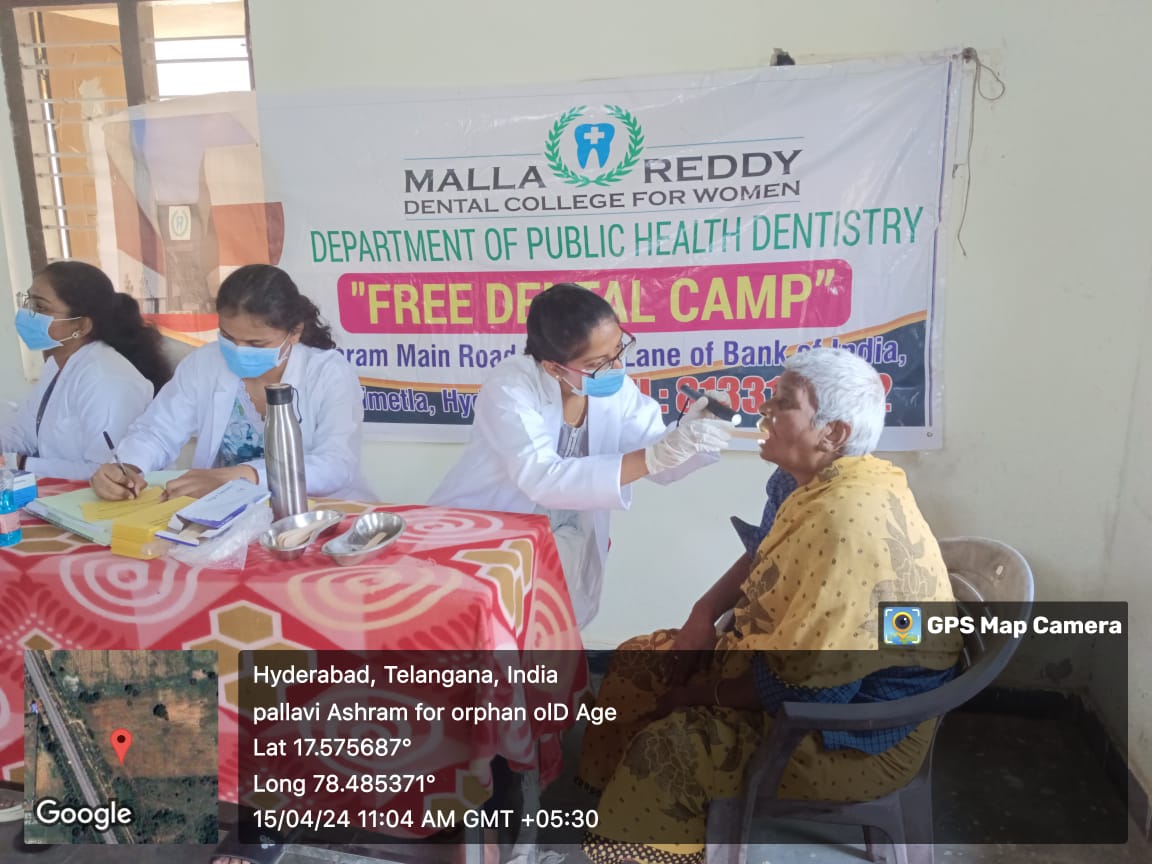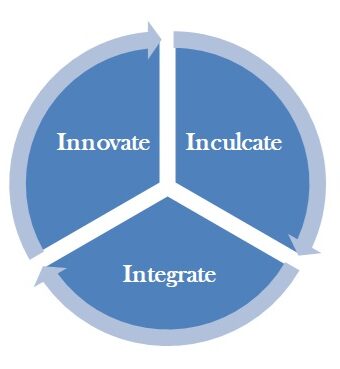
 The Department of Public Health Dentistry at Malla Reddy Dental College for WomenAims to Prevent Oral Diseases and Promote Oral Health in the Community as a whole and ‘To integrate oral health into everyone’s life’. Oral Health Promotion is done by conducting Dental awareness programs through various Camps, Role Plays, Rally, Skit, Demonstration, and Signal Campaigns. The undergraduate students are trained with a sense of responsibility and compassion to prevent dental diseases like Dental Caries, Periodontal Disease, Oral cancer, Malocclusion and Edentulousness. Outreach activities including screening as well as Treatment Dental Camps are conducted periodically to benefit the School Children and General Public. The importance of oral health promotion in improving their quality of life is emphasized and utilization of the dental services is encouraged.
The Department of Public Health Dentistry at Malla Reddy Dental College for WomenAims to Prevent Oral Diseases and Promote Oral Health in the Community as a whole and ‘To integrate oral health into everyone’s life’. Oral Health Promotion is done by conducting Dental awareness programs through various Camps, Role Plays, Rally, Skit, Demonstration, and Signal Campaigns. The undergraduate students are trained with a sense of responsibility and compassion to prevent dental diseases like Dental Caries, Periodontal Disease, Oral cancer, Malocclusion and Edentulousness. Outreach activities including screening as well as Treatment Dental Camps are conducted periodically to benefit the School Children and General Public. The importance of oral health promotion in improving their quality of life is emphasized and utilization of the dental services is encouraged.
Two ‘Satellite Dental Clinics’ are established in Shapur (UHC) and Medchal (RHC) to provide free Dental Services in an accessible manner.
‘Tobacco Cessation Centre’ is actively functioning in the College to Counsel and Motivate the patients who are willing to quit tobacco (Smoking and Smokeless forms) and contribute towards reduction of Tobacco related Mortality and Morbidity.
The Undergraduates are trained to conduct various Epidemiological Surveys to assess the Oral Health Needs of the population, Create Oral Health Awareness and develop Preventive and Treatment strategies for the Community.
VISION:
To improve the oral health of the community by creating awareness towards the prevention of Oral diseases and to utilize the dental services available.
MISSION:
| Name of the Staff | Qualification | Designation |
|---|---|---|
| Dr.K.V.Vijay Kumar | MDS | Professor & HOD |
| Dr.Vishnu Priya | MDS | Reader |
| Dr.Jammala Sasikala | MDS | Senior Lecturer |
| Dr.P.Priyanka | MDS | Senior Lecturer |
The National Service Scheme (NSS) is a public service program under the Ministry of Youth Affairs and Sports, Government of India. It was launched in 1969, marking the birth centenary of Mahatma Gandhi. The NSS aims to instil the idea of social welfare in students and to provide service to society without bias. Here are key details about the NSS in India:
Vision:
To build a community of young individuals committed to the ideals of social service, selflessness, and nation-building, thereby contributing to the socio-economic development of the country and fostering national integration.
Mission:
Develop a Sense of Responsibility: Cultivate a sense of social and civic responsibility among students.
Objectives:
Activities:
NSS activities are divided into two main types: